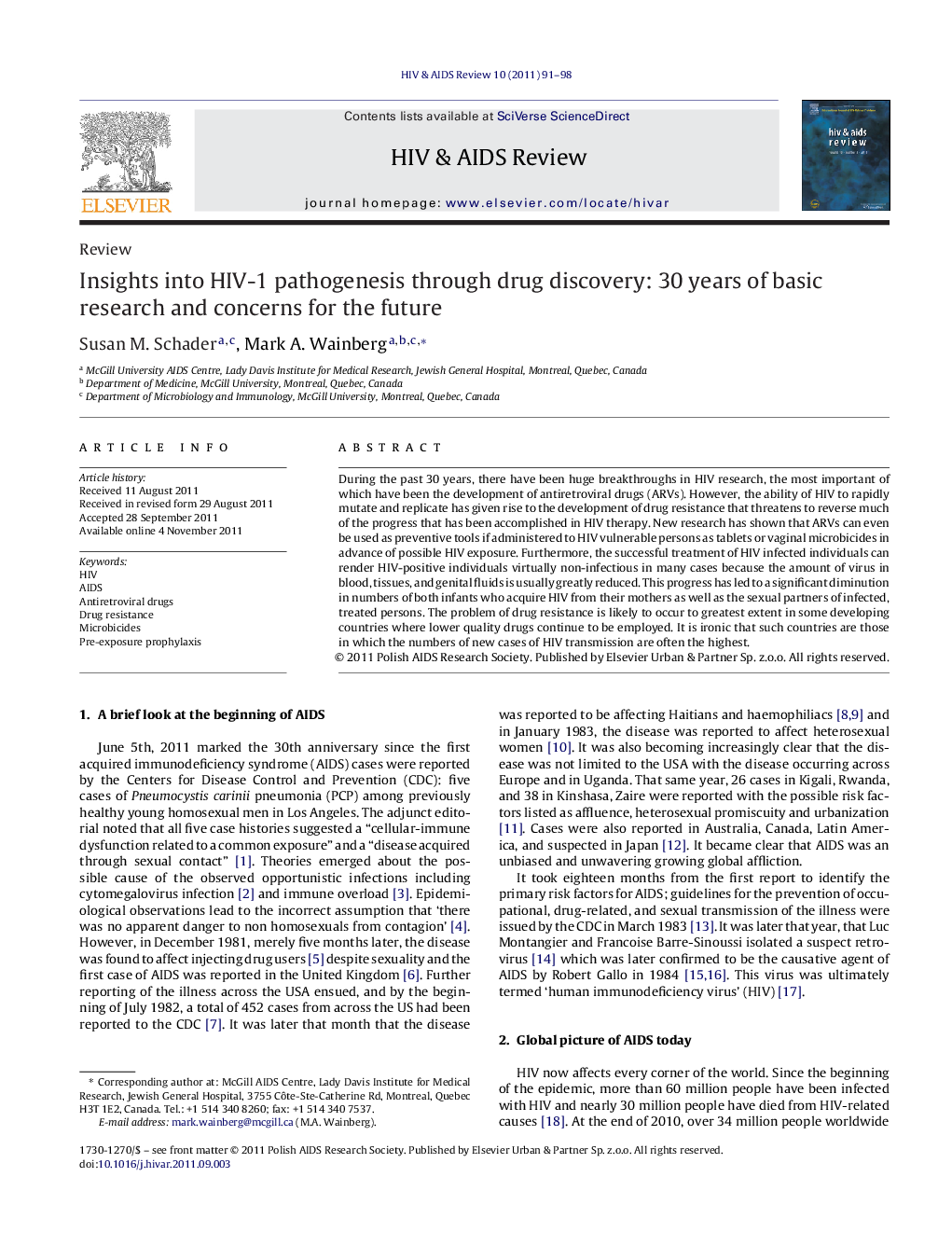| Article ID | Journal | Published Year | Pages | File Type |
|---|---|---|---|---|
| 3332428 | HIV & AIDS Review | 2011 | 8 Pages |
During the past 30 years, there have been huge breakthroughs in HIV research, the most important of which have been the development of antiretroviral drugs (ARVs). However, the ability of HIV to rapidly mutate and replicate has given rise to the development of drug resistance that threatens to reverse much of the progress that has been accomplished in HIV therapy. New research has shown that ARVs can even be used as preventive tools if administered to HIV vulnerable persons as tablets or vaginal microbicides in advance of possible HIV exposure. Furthermore, the successful treatment of HIV infected individuals can render HIV-positive individuals virtually non-infectious in many cases because the amount of virus in blood, tissues, and genital fluids is usually greatly reduced. This progress has led to a significant diminution in numbers of both infants who acquire HIV from their mothers as well as the sexual partners of infected, treated persons. The problem of drug resistance is likely to occur to greatest extent in some developing countries where lower quality drugs continue to be employed. It is ironic that such countries are those in which the numbers of new cases of HIV transmission are often the highest.
